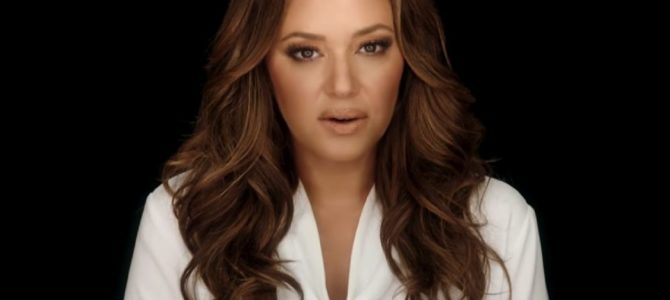
The first season of Leah Remini and Mike Rinder’s A&E series exposing the Church of Scientology had one aim: to explain the evils of the organization, which in no way is actually a church. The ratings and reception were better than anyone anticipated, and soon, a second season was ordered. Where once speaking out against Scientology could spell the end of a Hollywood career, the times, they are a-changin’, as most clearly evidenced by the fact that the series just won an Emmy.
The second season had one goal: to bring it down. In promotional clips, Rinder tells Remini, “We need to do more than just document this stuff.” The first episodes focusing on child abuse and forced labor were hard-hitting and left many viewers wondering how such an organization could function in the United States, let alone while enjoying tax-exempt status as a religious organization.
More recent episodes strayed a bit, focusing on the suicides of members, which, while tragic, I contend are not legally actionable. Aaron Smith-Levin, one of the most powerful critics of Scientology (and a contributor to the A&E series) pushed back against my assertions, making a critical point that the organization does indeed have culpability in the suicides of its members if Scientology authorities prohibited them from seeking professional help. But could suicides spark a law enforcement investigation? Unlikely. Last night’s episode, however, just might.
Interviews With Bodyguards to the Boss
Remini and Rinder spent the fifth episode documenting the rise of David Miscavige, the current leader of Scientology after the death of its founder, L. Ron Hubbard. In the previous season, Remini and Rinder highlighted just how sociopathic and violent Miscavige allegedly is, but this episode highlighted the institutional methods Miscavige used to seize power over the billion-dollar organization. It interviewed two men close to Miscavige: his former body men and the former head of security at the Gold Base.
John “JB” Brousseau was not only one of Miscavige’s body men, but also his former brother-in-law. Like many the pair interviewed in the last season, Brousseau says he became disillusioned upon witnessing Miscavige’s violent treatment of other members of the “church.” Brousseau’s testimony is powerful not only for those still in Scientology who view Miscavige as a kind of deity, but also to law enforcement because of the brutal nature of some of the assaults he described.
The most powerful portion of the episode, and most likely to be of interest to law enforcement, was the testimony of Gary “Jackson” Morehead, who designed the security system at the main center for Scientology on the West Coast, the Gold Base. He told Remini and Rinder, “The security system was designed to keep people out. Eventually, it became to keep them in.” Morehead described how the phone system removed the possibility for anyone inside to contact the outside world or even call 911.
So many staff members within the base with sensitive information about Miscavige and the organization tried to escape, Miscavige directed Morehead to create a “blow drill,” basically protocols for when a Sea Org member has escaped, or blown. Morehead would track down these members by monitoring their bank accounts, phone records, watching transportation hubs, and following their close family members and friends. Using these protocols, Morehead estimates he recovered about 300 members of Scientology who had tried to escape. Morehead did Miscavige’s dirty work, recovering disillusioned Scientologists and forcibly imprisoning them back on the base, because he believed he was helping them before they destroyed their souls by leaving Scientology.
A Forced Abortion Was the Last Straw
After years of acting as the Gold Base enforcer, it was his wife’s coerced abortion that “broke” Morehead’s connection to Scientology. Sea Org members were banned from having children, so when members found themselves pregnant, pressure to abort came not only from the organization, but often also the other party to the couple. Talking to Remini and Rinder about his wife’s abortion, Morehead broke down in tears, describing his shame at pressuring his wife to abort their child. Had they decided to keep the baby, they would have “had to leave their whole life, leave their friends,” he said.
Morehead objected to his wife’s treatment, and soon, he says, was subjected to a year of intense interrogations and monitoring, with the goal of destroying his marriage (which was successful). His wife’s abortion and the subsequent abusive treatment Morehead was subjected to afterwards was enough to inspire his defection.
The intended goal of the second season of “Scientology and the Aftermath” was to spark officials’ interest in the goings-on behind the scenes of the cult. Local law enforcement can and should be conducting raids at the Gold Base and asking every occupant, alone, if they wish to stay.
After the latest episode aired, a viewer remarked “Forced abortions? Why haven’t the GOP declared war on them?” A prominent Scientology-watching journalist, Tony Ortega, echoed this question, as do I, as a pro-life journalist. With both the House and the Senate Republican-controlled, inquiries into Scientology’s policy of coerced abortions should also begin given how many individuals have described its existence both on and off camera on the A&E special.









